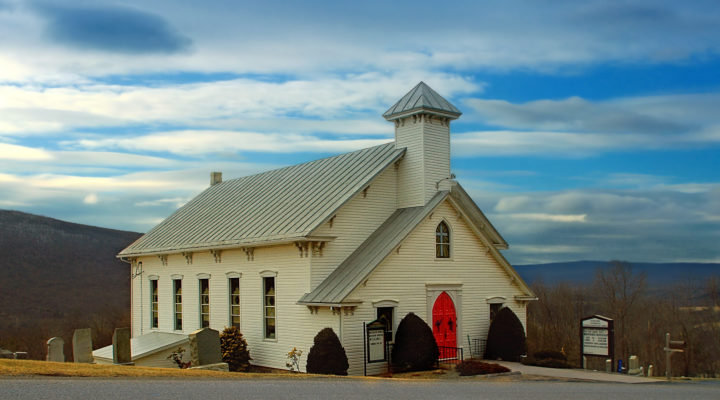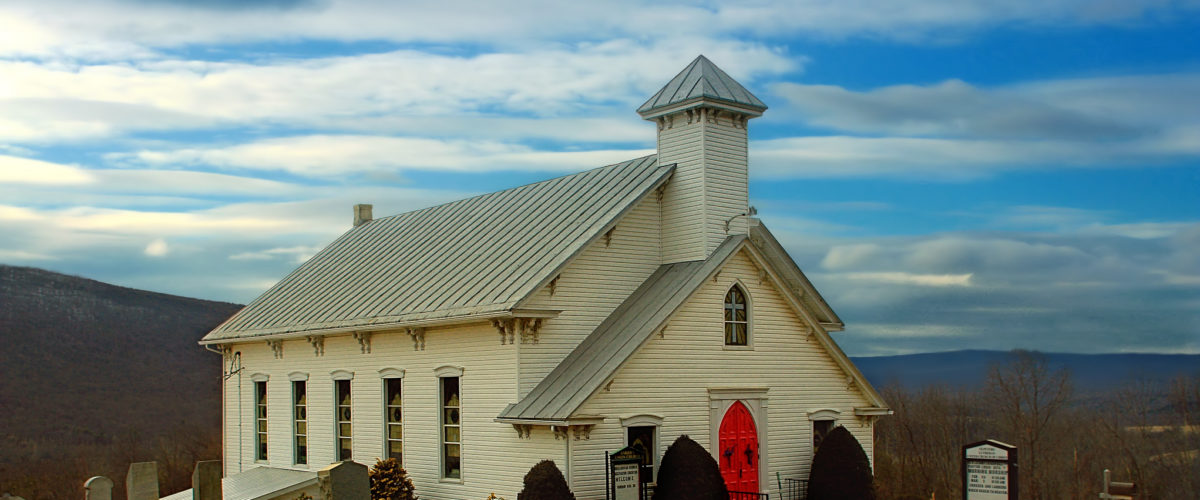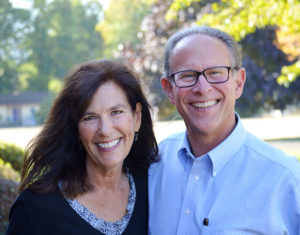Relatively few ministerial candidates want to lead small country congregations. Brian Wechsler knows that all too well.
“A lot of pastors aren’t interested in rural churches. They are much more interested in a town where there is a Starbucks,” said Wechsler, executive director of Village Missions, an Oregon-based ministry that connects rural congregations in the U.S. and Canada with ministers called to serve them.
It’s understandable. Those settings require pastors to provide all the functions usually divvied up by larger church staffs: pastoral care, preaching, teaching youth and children, paying the bills and preparing budgets.
And it can mean a whole lot more than that. During a pastorate in Colorado, Wechsler said he joined a rural fire department. He served as a chaplain and firefighter — and then visited those hospitalized after fires and motor vehicle accidents.
Writing for Christianity Today, Wechsler said there are rewards in leading rural churches. The experience, he wrote, can help pastors and their families explore their congregations, their communities and themselves in ways ministry in urban areas cannot. It boils down to understanding that rural church leaders are pastors for entire communities, sometimes regions.
“In the first church I served, I had eight funerals in the first year — none were church members,” he told Baptist News Global.
Wechsler spoke with BNG about the challenges and benefits of rural-church ministry.
How do you define a rural church?
That’s a question census people struggle with. … Rural areas can be farm-belt areas, the typical agricultural areas. … But the opposite can be extremely high-amenity areas — areas that have a lot of natural beauty, such as those located near national forests. … We served 12 years in a community in Colorado. It was 50 miles from the nearest grocery store and bank. … Eighty percent of the homes were seasonal homes. A lot of the people I served went south for the winter.
What is the reach of Village Missions?
We are coast-to-coast, California to Maine. In Canada, we stretch from Vancouver to Nova Scotia. We have 200 churches in the U.S. and 35 in Canada. … Not all of our churches need salary support — 44 percent do. I think the emphasis we place on preaching is important.
What are some of the main trends affecting rural churches these days?
The situations going on in rural America are placing increasing demands on pastors. Statistics from the CDC show farmers have higher suicide rates even than veterans. And opioids — rural areas have no infrastructure to deal with the epidemic, so it falls on the local pastor.
Are issues like aging, and Millennials’ reluctance to join churches, also impacting rural congregations?
There is an aging taking place in rural areas and the rural church. But one of the unique and special characteristics of rural churches is that they are inter-generational. … Often, there is a pretty vibrant work with kids and kids being involved in services. I’ve seen kids leading services and taking offerings. … The first town where I served, in Iowa, had 57 people and one year we had 120 kids at vacation Bible school.
A lot of urban pastors would envy that.
But that often has to be developed. What we are also seeing is many kids who are three to four generations removed from any sort of church involvement. They don’t know any of the basics of the gospel, whatever. That’s starting to happen in the South, but it’s much more prevalent in the northern part of the country.
Why does Village Missions call its pastors missionaries?
We are a mission agency and we do send missionaries. We go to Bible schools and seminaries and on the net … looking for couples called to ministry in rural North America. They raise some personal support on top of salary, then we will assign them to a church that has asked for help. … We call them missionaries because their ministry is not simply to minster to the local church people, but their ministry is to be out there in the community. In effect, they become the community pastor. … They also have to recognize they are going into a new culture. They have to learn that culture and communicate in that culture.
What is unique, from a missionary standpoint, about rural culture?
Usually there is a strong association with place and generations. Often, there is a more conservative approach to finances because the farm economy goes up and down and they may be cautious with spending in the church. You’ll see a big reliance on do-it-yourself kind of things. So if a church building needs repairs or renovation, it’s done by the guys in the churches. And there is a lot of inter-connectedness. If something happens in the community, the entire community rises to help.



